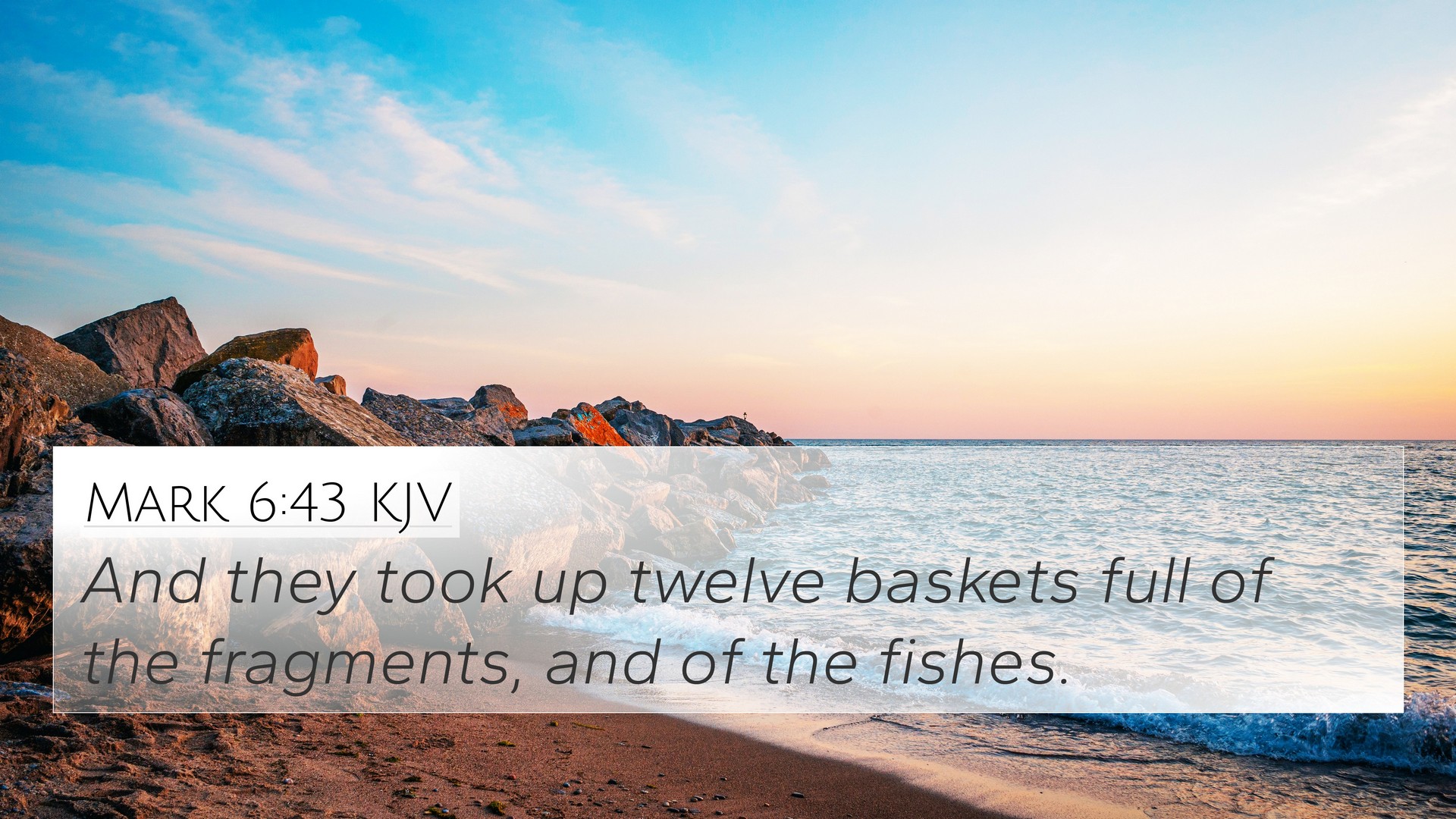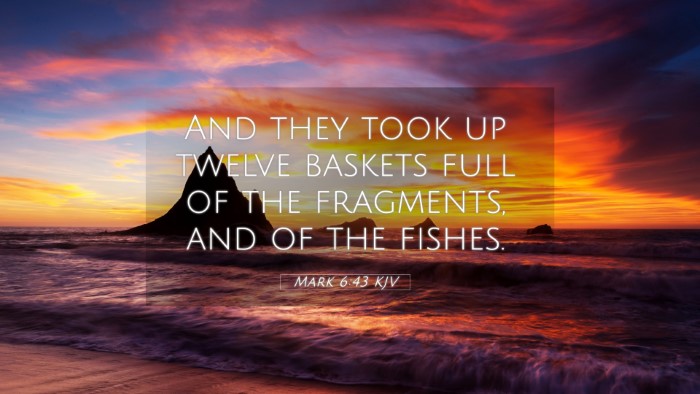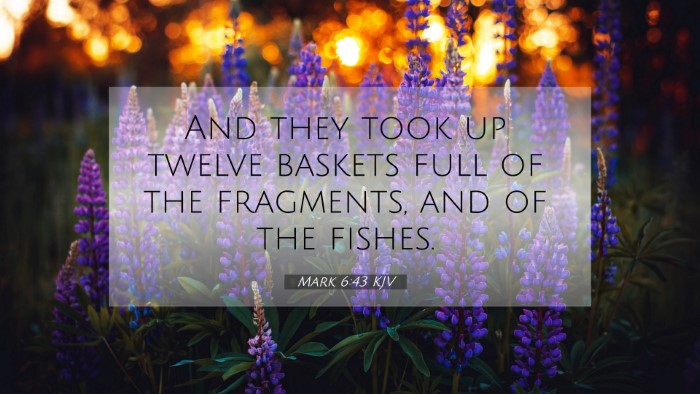Understanding Mark 6:43
Mark 6:43: "And they took up twelve baskets full of the fragments, and of the fishes."
Overview
This verse comes from the account of the feeding of the five thousand, a miracle performed by Jesus that highlights His compassion and divine power. The collection of leftovers is not merely a detail; it carries significant theological implications.
Commentary Insights
Matthew Henry's Commentary
Matthew Henry notes the abundance and surplus following the miracle serves to illustrate God's provision. The fragments symbolize how God does not just meet needs but provides more than enough. This teaches believers about God's generosity and the principle that in God's kingdom, there is always more than needed.
Albert Barnes' Notes
Albert Barnes emphasizes the significance of the number twelve, correlating it with the tribes of Israel. The twelve baskets full of fragments can be seen as a representation of God's care for His people throughout their history. Barnes suggests that the leftovers are tangible evidence of the miracle's truth, ensuring that those present could attest to its reality.
Adam Clarke's Commentary
Adam Clarke reflects on the practicality of the baskets being filled. He suggests that this act teaches us about organization and the importance of gathering what is leftover, indicating that nothing should be wasted. This aligns with biblical teachings on stewardship and care for resources.
Thematic Connections
This verse can be cross-referenced with several others that highlight themes of abundance, provision, and stewardship in the Bible:
- John 6:12: "And when they were filled, he said unto his disciples, Gather up the fragments that remain, that nothing be lost.” - Emphasizes collection and care for resources.
- Exodus 16:18: "And when they did mete it with an omer, he that gathered much had nothing over, and he that gathered little had no lack." - Demonstrates God’s provision in the wilderness.
- Philippians 4:19: "But my God shall supply all your need according to his riches in glory by Christ Jesus." - Connects to the promise of sufficiency.
- Matthew 14:20: "And they did all eat, and were filled: and they took up of the fragments that remained twelve baskets full." - A direct narrative parallel emphasizing fullness and gathering.
- 2 Corinthians 9:8: "And God is able to make all grace abound toward you; that ye, always having all sufficiency in all things, may abound to every good work." - Highlights God's grace and provision for good works.
- Psalm 23:5: "Thou preparest a table before me in the presence of mine enemies: thou anointest my head with oil; my cup runneth over." - Illustrates abundance and God’s care.
- Luke 6:38: "Give, and it shall be given unto you; good measure, pressed down, and shaken together, and running over, shall men give into your bosom." - Refers to the principle of generosity and overflowing blessings.
Practical Applications
This scripture emphasizes several applicable themes:
- Kicking Off Generosity: Understanding that God's provisions are more than sufficient encourages us to be generous towards others.
- Recognizing God’s Abundance: Identifying the blessings in our lives can foster a heart of gratitude.
- Waste Not, Want Not: The collection of leftovers indicates responsible stewardship of resources.
Conclusion
Mark 6:43 not only recounts a miraculous event but also invites deeper contemplation on God's provision, generosity, and expectations of stewardship among His followers. Through cross-referencing with other significant verses, we can draw connections that enrich our understanding of biblical themes and their applications to our lives.



